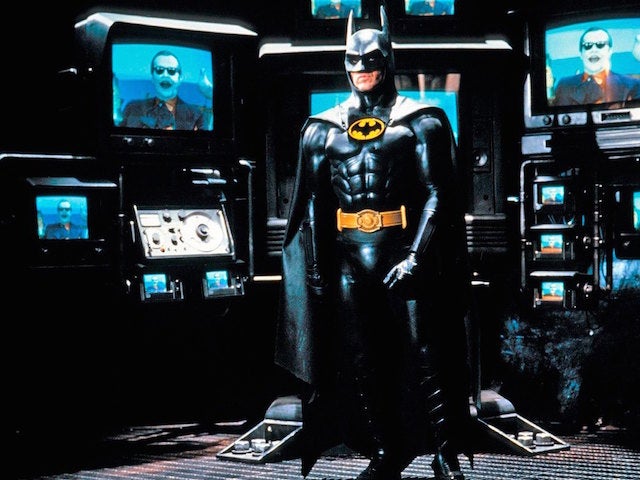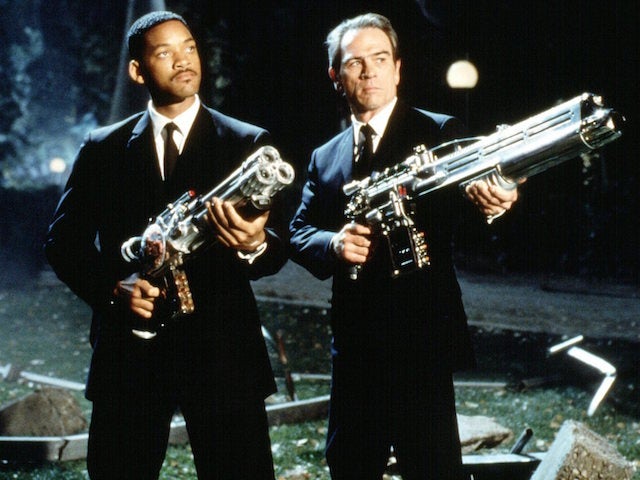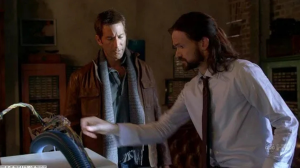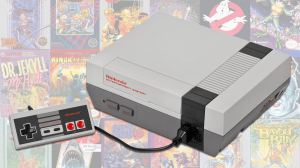Another year passes and another major superhero blockbuster — this time Wonder Woman — has Academy Awards buzz. While the snubs — Guardians of the Galaxy’s visual effects, or The Dark Knight for Best Picture — tend to attract a lot more attention, it is not unheard-of for a comic book movie to win an Oscar.
Videos by ComicBook.com
Earlier today, ComicBook.com reported that Wonder Woman director Patty Jenkins was asked about the film’s rumored Oscar campaign, and said she had not really considered the idea.
“When you’re making a movie it’s completely all consuming; there are many things you don’t have time to think about.” Jenkins explained. “I certainly wasn’t thinking about the Oscars. It’s just not something you consider when you make these kinds of movies. I did the best that I could, but you kind of assume you’re not going to be considered for that kind of thing.”
That doesn’t change the fact that there is a lot of buzz around the movie, which was a perfect storm: a massive commercial success (in a down year at the box office), a soaring Rotten Tomatoes score (despite being a spinoff from a movie that critics hated) and an uplifting character and message at a time when the world feels intensely confrontational and angry.
Before we get too deep down the rabbit hole of why Wonder Woman might or should win an Academy Award, though, let’s remember that it would not be the first comic book movie to do so…
…and no, The Incredibles doesn’t count, no matter how much we love it.
Superman: The Movie
The Man of Steel had some Oscar nominations as early as 1941, when the Fleischer cartoons almost took home the Academy Award for an animated short.
They would have to wait another thirty-odd years before Richard Donner’s Superman: The Movie blew everyone away and took home a number of Academy Awards.
The film won a Special Achievement Award for visual effects, which was given to Les Bowie, Colin Chilvers, Denys N. Coop, Roy Field, Derek Meddings and Zoran Perisic.
It was also nominated for sound design, film editing, and original score (something that would happen a lot in John Williams’s illustrious career).
Superman: The Movie is iconic and beloved, and continues to be discussed as among the best superhero movies ever made to this day.
Recently a scene from the movie, demonstrating Clark Kent’s physical transformation into Superman and back (without ever ripping open his shirt) went viral, and just today the Warner Archive Collection announced that the long-lost “Expanded Cut,” which aired on TV in the ’80s, will come to Blu-ray.

Batman
It should be no surprise where the award came from here.
Tim Burton’s Batman was once one of the biggest blockbusters in Hollywood history, and while the Bat-Mania it inspired has been largely forgotten in the time since, the big thing that it is remembered for is the rich, gorgeous, gothic look of the picture.
It should, then, be no real surprise that the Academy Award for Best Art Direction-Set Decoration went to Batman‘s Peter Young and Anton Furst.
It also set the stage for what would be a recurring motif throughout the bat-films: whether for good or ill, each director who comes on board to take charge of a Batman movie has his own incredibly distinct look and feel. You can take one look at either of the Schumacher Batman movies and know they’re form Schumacher; ditto for Burton, or Nolan’s trilogy.
Contrast that to the first-generation Superman films, where the world around Christopher Reeve looks much the same whether or not Richard Donner is actually behind the camera — or, hell, at the Marvel movies which, outside of James Gunn’s eccentric and amazing visuals in the Guardians films, all look very much like they came out of a house style that makes telling most of them apart fairly challenging for the casual viewer.

Men in Black
Here is a movie that most people did not know was a comic book — it was originally printed by Malibu — and which turned out to be a massive surprise hit at a time when not that many comic book movies were being made.
As the Schumacher Batman movies nearly killed DC’s cinematic hopes, Men in Black became a massive success, and earned three Oscar nominations, eventually taking home a win for Rick Baker and David LeRoy Anderson’s makeup work.
The other nominations were for Best Art Direction-Set Decoration and Best Music, Original Musical or Comedy Score, which was a nomination for Danny Elfman — someone who has scored some of popular culture’s most iconic properties, including Burton’s Batman.

Spider-Man 2
Everyone’s favorite Spider-Man movie (well, not everyone, but there’s a clear plurality on this) managed to take home an Academy Award, too — one that superhero movies are often nominated for but rarely win.
That would be Best Achievement in Visual Effects, which went to John Dykstra, Scott Stokdyk, Anthony LaMolinara and John Frazier.
The film was also nominted for sound mixing and sound editing, but did not take those home.

The Dark Knight
This one was a two-time winner! Unheard of!
While everyone knows that Heath Ledger won for Best Supporting Actor and most cinemaphiles remember the outrage that the film wasn’t considered for Best Picture, it’s a little easier to forget that Richard King won for sound editing.
All of that was overshadowed not only by Ledger, but by one of the Academy’s many recent attempts to respond to a changing marketplace by including a broader cross-section of films — including those made by minority communities, commercial successes that have been recently frozen out of award consideration, and more — in the process.
The year after The Dark Knight was snubbed, the number of total eligible Best Picture slots rose to 10. Ten films are rarely actually nominated, but..it’s the thought that counts?

Big Hero 6
This one is kind of obvious, right?
Yeah, the film won for Best Animated Feature…which is a legit win, especially in a year when it had some pretty stiff competition, but it isn’t exactly a surprise.
This was teased around on the internet as the first Academy Award win for Marvel — which it wasn’t, really. Yes, it was the first movie based on a Marvel property to win since the Marvel Cinematic Universe was conceived, and yes it was made by Disney in the time after they had acquired Marvel.
Still, this was no more a Marvel win than Spider-Man 2 (Sony) was, so while some people will cling to Big Hero 6 as Marvel’s Oscar cred, those voices will be silent as soon as Marvel Studios proper gets a notable win — which they will, since they make technically excellent and broadly appealing movies. It’s just a matter of time.

Suicide Squad
After years of people being angry that such-and-such a superhero movie did not get nominated, or was nominated and didn’t win, Suicide Squad flipped the script and had people freaking out because it got the Oscar.
Alessandro Bertolazzi, Giorgio Gregorini, and Christopher Nelson won best makeup/hairstyling, and while that might feel like a non-issue, the internet managed to totally freak out about it, mostly because to a certain subset of folks on social media “Academy Award-winning Suicide Squad” was the funniest or most offensive thing they could possibly think of.
It was, more realistically, another in a long line of expensive, beautifully-shot superhero movies to win a technical award. This one was basically only different because it has a Rotten Tomatoes score about 30 points lower than anything else on this list.









